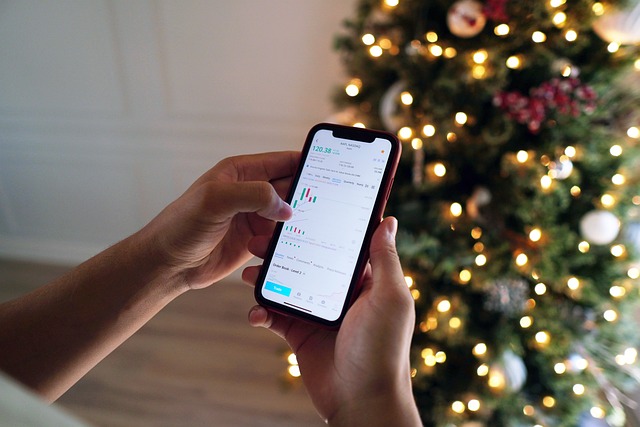Is Intra Day Trading Allowed in Islam? A Practical Sharia Guide
Author: Jameson Richman Expert
Published On: 2025-10-30
Prepared by Jameson Richman and our team of experts with over a decade of experience in cryptocurrency and digital asset analysis. Learn more about us.
The question "is intra day trading allowed in islam" is one every Muslim trader should consider carefully before executing fast-paced trades. This comprehensive guide examines Islamic jurisprudence (fiqh) principles—like riba (interest), gharar (excessive uncertainty), and maysir (gambling)—and applies them to modern intraday trading practices across stocks, forex, CFDs, and cryptocurrencies. You’ll find clear criteria scholars use to judge permissibility, practical steps for structuring halal intra day trading, examples, scholarly positions, and resources (including real-time market tools and analysis) to trade ethically and responsibly.

Quick summary: core points
- Islamic law doesn’t categorically ban trading; it forbids riba (interest), excessive uncertainty (gharar), and gambling (maysir).
- Intra day trading can be permissible if it involves immediate ownership and settlement, no interest-bearing leverage, transparent contracts, and avoids speculation that amounts to gambling.
- Many scholars accept spot trading (stocks, forex, crypto) done without interest and with proper intention; leveraged margin trading, CFDs, and certain derivatives are more problematic.
- Practical steps include using spot/zero-swap accounts, avoiding interest-bearing margin, recording trades, and seeking a qualified fatwa for complex products.
Understanding the Islamic legal principles that matter
To evaluate whether intra day trading is allowed in Islam, we must apply the following foundational Islamic finance principles:
- Riba (interest): Any guaranteed interest or usury is prohibited. Interest charged on margin loans or swap (overnight) fees can make a trade impermissible.
- Gharar (excessive uncertainty): Contracts must have sufficient clarity on essential terms—subject matter, price, delivery. Excessive ambiguity or speculative arrangements are not allowed.
- Maysir (gambling): Transactions that are essentially games of chance or pure speculation with no productive economic activity are prohibited.
- Asset existence and transfer of ownership: The traded asset should exist and be owned by the seller at the time of sale (spot trading), or there should be a valid Sharia-compliant contract governing the transaction.
- Halal underlying business: The company or asset must be free from activities considered impermissible (e.g., alcohol production, conventional banking with high interest exposure, gambling businesses).
These criteria form the test: if intraday trading respects them, many scholars consider it permissible; if it violates them, it is impermissible.
Types of intra day trading and their Sharia assessments
Not all intraday instruments are equal under Sharia. Below is an assessment of common intraday instruments.
1. Spot stocks (shares of public companies)
Spot trading in halal businesses—buying and selling shares on the same day—is generally permissible if:
- Ownership is transferred upon trade (no synthetic claims or derivatives).
- No interest-bearing loans or overnight interest are involved (or interest is not part of the transaction).
- The company's core activities are halal.
Many Islamic scholars permit intraday trading of shares provided the trader ensures the company is Sharia-compliant and the trade is executed as a genuine spot sale. Screening tools and Sharia indices can help identify permissible stocks (see resources below).
2. Forex spot trading
Spot foreign-exchange trades can be acceptable if settlement is immediate and ownership transfers instantly. The majority of classical concerns arise with:
- Leverage and margin financing that incur interest—this introduces riba.
- Deferred settlement that resembles debt.
Islamic scholars more readily accept forex spot trades that are settled same-day and not financed by interest. Some modern fatwas allow forex spot trading when conducted on exchanges or platforms that offer swap-free accounts and ensure immediate settlement.
3. Contracts for Difference (CFDs) and leveraged derivatives
CFDs, spread bets, and many leveraged derivatives are problematic in Sharia because:
- They are often contracts on price differences without delivery of the underlying asset (no actual ownership).
- Leverage typically involves borrowing with interest or swap fees.
Consequently, most scholars consider CFDs impermissible.
4. Options and futures
Standard futures and options can be considered impermissible under traditional juristic reasoning because they involve deferred delivery and speculation (gharar). However, Sharia-compliant structured contracts (like salam and istisna for commodities) exist for legitimate hedging and financing, but these are specialized and usually not used for retail intraday speculation.
5. Cryptocurrencies and intraday crypto trading
Cryptocurrency trading has become a focal point for Muslim traders and scholars. Opinions vary:
- Some scholars accept crypto as an asset if it functions as a medium of exchange or store of value and is not intrinsically haram. Spot trading without leverage is more acceptable.
- Other scholars highlight excessive volatility, anonymity-related illicit uses, and lack of intrinsic value as reasons for caution.
If you trade crypto intraday, apply the same rules: trade spot (actual transfer of tokens), avoid interest-bearing margin, and avoid assets primarily used for illicit activity. For context on crypto markets, real-time market tools and price-forecast discussions can be helpful—see a practical resource on live crypto prices and analytics for traders at this guide to live crypto prices.

Scholarly opinions and fatwas: overview
There is no single, universal fatwa that encompasses every form of intraday trading. Instead, rulings depend on:
- Type of instrument
- Contract terms (delivery, settlement, ownership)
- Use of leverage or interest
- Purpose and intention of the trader
Examples of prevailing positions:
- Many contemporary Islamic finance scholars permit spot trading in stocks and forex without interest or deferred settlement.
- Most scholars prohibit speculative derivatives such as CFDs and leveraged products that involve riba.
- Some recognized Islamic finance boards allow crypto spot trading under conditions; others counsel caution.
For a detailed analysis comparing cryptocurrency spot vs. derivatives under Sharia, see this in-depth discussion regarding whether Binance spot trading is halal for Muslim traders.
Practical checklist: how to make intra day trading as Sharia-compliant as possible
If you decide to engage in intraday trading while aiming to remain within Islamic law, follow this checklist:
- Prefer spot trading and immediate settlement: Ensure trades transfer ownership instantly. Avoid instruments where you never take ownership (CFDs).
- Avoid interest (riba): Do not use margin or credit that incurs interest. If your platform charges overnight swaps, close positions before the swap period or use a swap-free (Islamic) account.
- Avoid pure gambling/speculation (maysir): Create a documented trading plan with risk controls and a rationale for each trade (technical/fundamental reasoning). Avoid bets with no informational basis.
- Ensure the underlying asset or company is halal: Screen equities for prohibited activities. Several Sharia screening methodologies exist.
- Use regulated, transparent exchanges and tools: Prefer exchanges that provide transparent settlement and custody. Use reputable real-time data and analytics to inform decisions—see a live crypto market data guide for advanced traders.
- Keep records and seek advice: Maintain trading logs, profits/losses, and consult a qualified Islamic scholar or Sharia board if uncertain.
- Consider zakat/tax and gifting of impermissible gains: If a portion of your gains is determined impermissible (e.g., interest), scholars sometimes advise donating it to charity without intention of worship to purge it.
Examples: halal vs haram intraday trading scenarios
Concrete examples will clarify.
- Scenario A — Halal possibility: You buy 500 shares of a halal tech company on a regulated stock exchange at 09:45 and sell them at 14:30 the same day. Settlement is spot and the broker does not finance the purchase with interest. This is generally acceptable.
- Scenario B — Problematic: You open a leveraged CFD position 50:1 on a forex pair. The broker charges overnight swap interest and you never take ownership of the underlying asset. This is generally considered impermissible.
- Scenario C — Crypto spot with caution: You buy Bitcoin on a spot exchange and sell intraday without leverage. If custody and settlement are clear and the asset is not used for illicit activity, many scholars would consider this acceptable, though opinions vary.

Tools, resources, and further reading (authoritative)
Use reliable information and scholarly resources to support your decisions:
- Overview of Islamic finance (Wikipedia) — useful for foundational concepts like riba and gharar.
- Riba (Interest) — background on the prohibition of interest in Islam.
- Gharar (Uncertainty) — explains ambiguity and speculative risk in contracts.
- Day trading definition and strategies (Investopedia) — practical trading concepts that help separate informed trading from gambling.
- For advanced crypto market tools and streaming analytics, consult this guide to live crypto prices and advanced analytics, which helps intraday traders make data-driven choices.
- To understand price forecasting limitations and realistic expectations for crypto markets, review this analysis on coin price forecast accuracy in 2025.
How to structure your account and choice of exchange
Account and platform selection matter a lot for Sharia-compliant intraday trading. Practical guidelines:
- Use spot-focused exchanges and regulated brokers: Prefer platforms that offer spot trading with clear custody and settlement. Transparent order books and fast execution reduce gharar.
- Choose swap-free (Islamic) accounts if available: Many brokers offer Islamic accounts that remove overnight interest (swaps). However, read terms carefully—some charge administrative fees that must be checked by a scholar for acceptability.
- Avoid default margin/leverage settings: If you must use a broker that offers leverage, avoid using it for positions where interest is incurred.
- Documentation and digital receipts: Keep trade confirmations, timestamps, and settlement evidence to show immediate transfer of ownership when needed.
If you want to open spot trading accounts on major exchanges commonly used for intraday trading, reputable platforms include Binance (spot), MEXC, Bitget, and Bybit. You can register using the referral links below; these are suitable for opening spot accounts where you can prioritize swap-free or spot-only trading setups:
- Open a Binance account (spot-focused)
- Open a MEXC spot account
- Open a Bitget account
- Open a Bybit account
Note: These platforms provide both spot and derivatives products. Stick to spot markets and review swap/margin policies to maintain compliance with your Sharia criteria.
Special considerations for cryptocurrency intraday trading
Cryptocurrencies bring unique considerations. Use the following checklist for crypto intraday trading:
- Confirm token legality and use-case: Is the token primarily a utility, governance, or speculative instrument? Tokens used for illicit activity or speculative schemes carry higher risk of impermissibility.
- Spot custody and settlement: Prefer trades where you receive actual token ownership in your wallet or trusted custodial account immediately.
- Beware of mixing interest: Staking or lending programs that promise fixed returns may involve elements akin to riba or profit-sharing structures that require careful analysis.
- Volatility and gharar: High volatility does not automatically make an asset haram, but it increases gharar. Ensure trades are well-justified and not pure gambling.
For traders using signals and technical systems for crypto intraday trading, it helps to learn about signal sources and the reliability of forecasting. A resource on ETHZ signals and systems explores signal foundations and trading applications. For macro drivers like ISO 20022 adoption and its potential impact on XRP and broader crypto markets, see this analysis of ISO 20022 and XRP price predictions for 2025—these macro insights can influence intraday decision-making when combined with technical analysis.

Dealing with gray areas: interest, fees, and charity
Even when you try to be careful, you may incur some interest or swap fees unintentionally. Common scholarly advice includes:
- If interest income is received unintentionally, segregate that portion and donate it to charity without claiming it as worshipful income.
- If swap-free accounts charge admin fees, have them reviewed by a scholar to ensure they are not a disguised interest.
- When in doubt, document and consult a qualified Islamic jurist or Sharia advisory board; local rulings can differ.
Practical trading rules and risk management consistent with Sharia
Islamic finance encourages prudent and productive economic activity. Your trading plan should reflect disciplined risk management:
- Position sizing: Avoid outsized positions that turn trading into speculation.
- Stop-loss and take-profit: Use orders to limit losses and preserve capital; these are compatible with Sharia when used to manage risk.
- Document strategy and rationale: Maintain a trade journal; rational decisions are less likely to be classified as gambling.
- Education and continuous learning: Use authoritative analytics, backtesting, and economic data to inform intraday decisions. For real-time analytics and trading dashboards, consider trusted guides and tools that aggregate market data.
Case studies and illustrative examples
Case study 1: Halal intraday equity trade
Fatima trades intraday on a halal-screened tech stock. She uses a cash account (no margin), executes a buy order at 10:00, and sells at 15:00 after a breakout. Settlement is as per exchange rules, and she takes no interest-bearing financing. The company passes Sharia screening. This trade is generally regarded as permissible.
Case study 2: Problematic leveraged crypto trade
Ahmed uses leveraged margin on an exchange to open a 10x short on a cryptocurrency. The platform uses margin loans with overnight interest and offers no swap-free option. This introduces riba and is considered impermissible by most scholars.

Common questions answered
Is day trading the same as gambling in Islam?
Not necessarily. Day trading based on analysis, strategy, and risk management is different from gambling. The distinction hinges on whether the activity involves excessive uncertainty and pure chance versus informed, productive market activity. Documented strategy and research reduce the risk of it being categorized as maysir.
Are swap-free accounts fully Sharia-compliant?
Swap-free accounts remove overnight interest charges, but you must check whether the broker replaces swaps with administrative fees or other hidden charges. Have the terms reviewed by a knowledgeable scholar to confirm acceptability.
Can I trade futures intraday in a Sharia-compliant way?
Standard futures typically involve deferred delivery and speculative elements and are generally seen as impermissible. Some specialized Sharia-compliant hedging contracts exist for businesses but they are not equivalent to retail futures trading.
Where to learn more and continue responsibly
For deeper reading and tools to support intraday trading decisions, these resources are helpful:
- Real-time market data and advanced analytics: guide to live crypto prices and advanced analytics for traders (useful for intraday decision-making).
- Accuracy and forecasting limits: article on how accurate coin price forecasts are and expectations for 2025—helps temper speculative bias.
- Sharia analysis of crypto and exchanges: in-depth analysis on whether Binance spot trading is halal—practical for Muslim traders evaluating crypto spot markets.
- Signal systems and trading foundations: comprehensive guide to ETHZ signals and systems—helps traders evaluate signal reliability and system-based trading.
- Macro impacts on crypto markets: comprehensive analysis of ISO 20022 going live and its potential effect on XRP prices and global finance—helps traders factor macro events into intraday strategies.
Final recommendation: cautious, principled, and consultative approach
The short answer to "is intra day trading allowed in islam" is: it can be allowed under Sharia if trades avoid riba, excessive gharar, and maysir; involve actual ownership or valid Sharia contracts; and the underlying asset and the manner of trading are halal. Because modern markets include many complex instruments, the safest approach is to:
- Prefer spot trading with immediate settlement and no interest-bearing financing.
- Use swap-free or cash-only accounts and regulated exchanges with transparent custody.
- Avoid CFDs, leveraged derivatives, and interest-based margin unless a Sharia ruling deems them structured appropriately.
- Consult qualified scholars or Sharia advisory boards for instrument-specific rulings and maintain clear records of trades.
Intraday trading can be part of a halal economic life when conducted responsibly, transparently, and with intention aligned to Islamic principles. For practical trading tools, up-to-date market analytics, and further reading that supports responsible intraday trading, see the resources linked above including market data guides and Sharia-oriented analyses. If you are assessing exchanges for spot trading, consider registering through reputable platforms that support spot markets and review their terms carefully before you use leveraged products.
Important: This article provides general information and does not replace personalized religious guidance. For a binding ruling, please consult a qualified Islamic scholar or Sharia board in your jurisdiction.
Further reading and links referenced in this article: